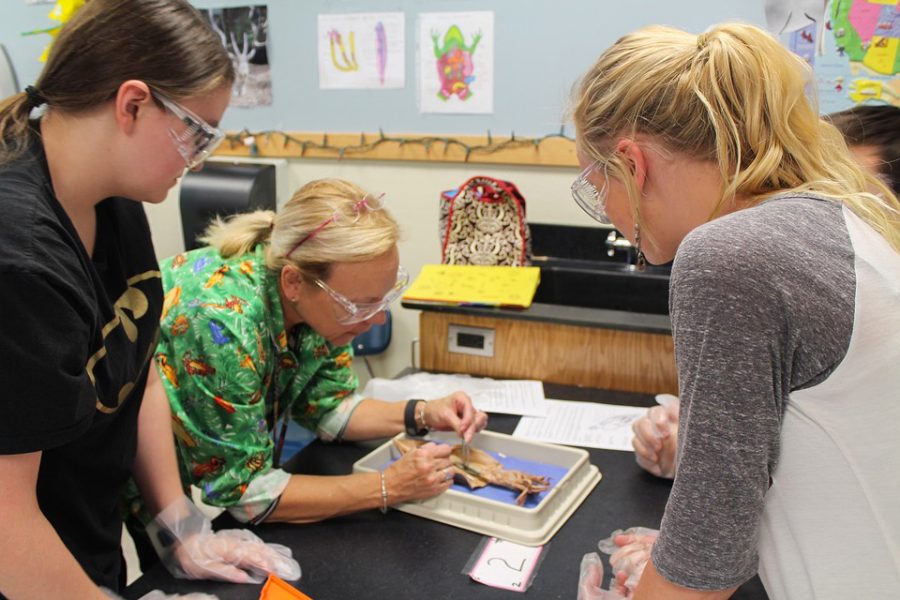UCORE needs another science requirement
WSU wants scientific literacy for students but doesn’t require enough science courses to give it
Adding science 101 or 102 to UCORE would ensure that all students have a basic understanding of many different areas of science, including geology, chemistry, physics and biology.
August 30, 2019
Every student who goes through university should get a well-rounded education. They should leave with all the skills required for their chosen field. They should also be able to write, think critically and be scientifically literate.
WSU’s attempt to give students a well-rounded education is its University Common Requirements program, also known as UCORE. While the program meets many of the goals it sets forth, it needs a larger focus on scientific literacy.
WSU implemented UCORE in 2012 as a replacement to the general education requirements (GERs) used previously. One of the major components of UCORE is History 105: Roots of Contemporary Issues, which was created to hit as many of the UCORE areas of study as possible.
UCORE requires that every student (apart from those in the Honors College) takes 34 credits, or about one-fourth of their total 120 credits needed to graduate.
“Through active engagement with practical, widely applicable skills and ways of thinking, UCORE prepares students to address diverse and complex issues, and to act as responsible, informed citizens,” wrote Clif Stratton, recently appointed director of UCORE, in an email.
Students take classes through seven different categories, including roots of contemporary issues, communication, social sciences and natural sciences. UCORE attempts to tie them together with a variety of learning goals, some of which are critical thinking, information and scientific literacy, and integration of learning.
Many WSU students are unaware of these goals; instead, when they sit down to pick their classes, they just see a list of requirements.
However, UCORE needs a stronger emphasis on scientific literacy. Students are required to take two science classes—a biological science and physical science—for a total of six credits. STEM majors will take many more science courses, but non-STEM students rarely have any need to take more than those two science classes.
Due to the complex nature of scientific literacy, it is hard for an English or diversity course to strengthen a student’s scientific literacy, yet students are only required to take two science courses.
In order to meet UCORE’s goal of scientific literacy, it should add another science course, one covering a variety of scientific topics, like what History 105 does with the UCORE categories.
Science 101 and 102 fill this role as paired courses aiming to give students a broad understanding of science.
“[Science 101 and 102 explore] big ideas in science, where they came from, how we know what we know, and we explore … geology, chemistry, physics, and paleontology, biology and astronomy,” Lisa Carloye, associate clinical professor of biological sciences, who teaches both courses, said.
Carloye said the GERs included one more science requirement than UCORE.
“The caveat to that, is that part of the goal of going to UCORE was to reduce the number of credits that students were required to take outside of their major so that they would have more freedom to choose courses of their own choosing,” Carloye said.
The credit increase may be necessary. If the UCORE committee wants to meet its goal of scientific literacy, then another science class needs to be added.
Students will wind up taking many UCORE courses while pursuing their majors. An English major will meet the UCORE English requirements and then some in the same way that an engineering major will meet the UCORE math and science requirements and then some.
Ensuring students are more scientifically literate at the cost of a few more credits is worth it, as scientific principles and discovery are having more of an impact, and our society is increasingly dictated by scientific principles and discovery. Science affects every aspect of modern life. To better understand science is to better understand the world and affect the course of history.

















